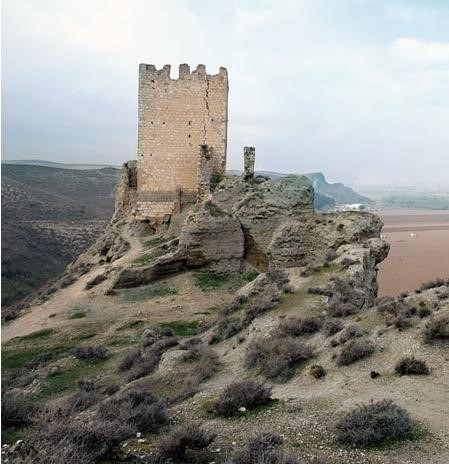Historical Synthesis
Oreja and Colmenar de Oreja, Castilian names of the Latin Aureliae and Apis Aureliae, were in the antiquity parts of a whole, in which Oreja was the head and Colmenar an extension. Both villages are a product of the Roman domination, although numerous archaeological findings locate the defeat that Hannibal infringed to the carpetans in the 220 b. C. below Oreja. It owes his name to that the Roman establishment became at the time of proconsul Scipión and consul Aurelio.
After to have known Roman Visigoth and Arab dominion, Oreja jumps again to the history in form of powerful Arab fortress finally conquered by the emperor Alfonso VII personally in 1139, fact this with strong repercussion in contemporary chronicles and, mainly in the highly interesting historical-legal fact that constitutes the “Fuero de Oreja” (Oreja’s Code) who its is preserved in the “National History Archive”.
Alfonso VIII conceded in 1171 to the Order of Santiago, being master D. Pedro Fernandez de Fuentecalada, the Oreja’s Castle with his territory and villages, among them, the old Colmenar. In 1540 it passed from Order of Santiago possessions to Ducal House of Maqueda, and later it was integrated into the Seigniory of Frías, where it continues until the abolition of this last one.
Throughout this time it occurred the formation of the Real Site of Aranjuez, that left Oreja reduced to a very small settlement in the shade of its castle. At the same time Colmenar, its old attached one, grew coming to the present division of provinces in 1833, with Oreja having a small territory in Toledo, and Colmenar an extensive territory and numerous neighbourhood in Madrid.
In 1922, Alfonso XIII granted Colmenar de Oreja the rank of city, in prize to the many merits contracted throughout its history, agreeing with the prosperity of the industry and the might of the agriculture. During XIX century and five decades of XX, was the third more populated municipality of Madrid.
City Title….

In 1922, Alfonso XIII granted Colmenar de Oreja the rank of city, in prize to the many merits contracted throughout its history, agreeing with the prosperity of the industry and the might of the agriculture. During XIX century and five decades of XX, was the third more populated municipality of Madrid.
An historical romance....
In the assault of Cordoba by Almoravids, 26th of March 1091, Motamid’s son died in the defence of the city, being the previous a king of Seville that had taken the castle from Oreja to Toledan king Alcádir in 1085.
Her widow, Princess Zaida, fled in search of the shelter of Alfonso VI, that had conquered Toledo, from whom "was enamored with heard, which not of views", offering to him if he took her as wife the castles snatched by its father-in-law to Toledan king Alcádir, between them the one of Oreja.
From it resulted that a loving romance put Oreja under dominion of the Christians, although for a short period, because the defeat of Uclés in 1108 gave back Oreja to the Islam.
A knight’s history…
In 1139, Alfonso VII besieged the Oreja’s Castle. The besieged requested aid and the forces that came to aid them, passing through Toledo attacked its defences, being recriminated by the Empress Lady Berenguela, that commanded them to fought against her husband Alfonso VII in Oreja where he was, and not against a woman; the forces, shamed, retired by where came, and this conduct was soon corresponded by Alfonso VII letting retire in freedom to the besieged from Oreja towards Calatrava.
The modernist Oreja’s Fuero…
The Fuero of Oreja, given in Toledo the 3rd of November 1139, granted important tax exemptions to encourage the repopulation of the zone, some so appeased and current nowadays as this: "Over all of this, if someone were to the Oreja’s Castle with a woman, neither forced, nor married, nor relative, nor taken by the force and wanted to be one of its settlers, he would be safe, and the Oreja’s Lord wouldn’t be afraid of receiving him, and he would not respond to any relative of the woman by this fact, nor the one that seduced her".

